Maa-er haat-er ranna — few other phrases stir up a deep, personal and powerful storm of emotions. It means something different to each of us, yet we feel the same lump in the throat. For some, it’s the healing whiff of ghee-soaked bhaat with a squeeze of gondhoraj lebu on summer afternoons. For many others, it’s the aroma of simmering kosha mangsho on lazy Sundays, wafting through the air of every corner of the house, keeping us drooling (and tugging at our mothers’ aanchol) till lunchtime.
Such is the magic of a mother’s cooking — soothing, nostalgic and irreplaceable. More than the taste, it’s the quiet comfort, the feeling of being cared for and someone knowing exactly what you crave, ladled onto your plate with the sweet “aar ektu di?” Even the simplest dish, made with no written recipes, YouTube tutorials and exact measurements, leaves an indelible mark on our memory that no lavish meals at fancy restaurants do.
This Mother’s Day, My Kolkata celebrates the myriad memories of food shared by people from in and around the city, for whom a humble bowl of dal or the warm wave of luchi hitting hot oil is not just a daily habit. It’s a heartwarming story, a memory etched in the heart. A mother’s way of saying ‘I will always love you’ without the need to say the words.
Comfort, home and lazy Sundays
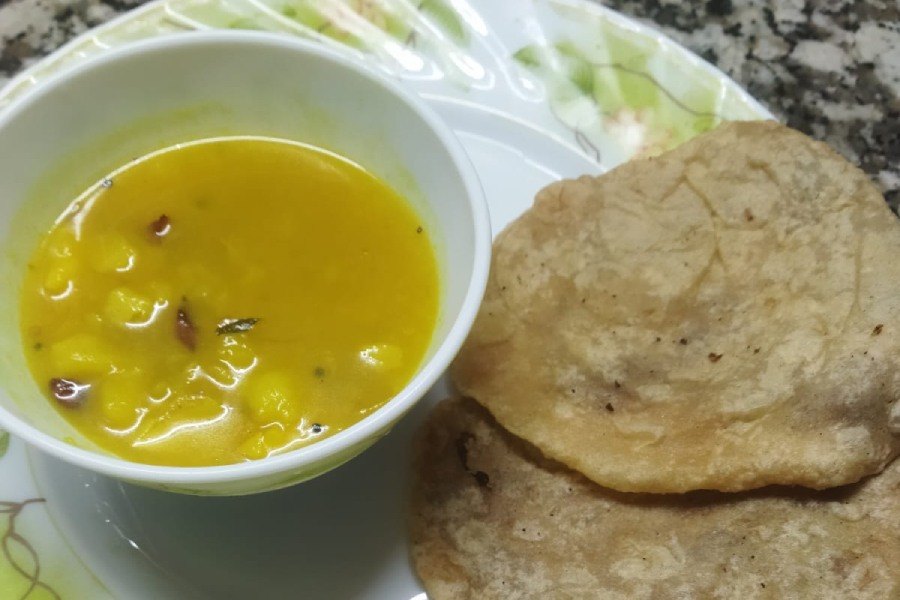
Luchi and Alu Dal is a common dish that Srabani Bhattacharya savours since childhood Sourced by correspondent
For Bengalis, alu is an emotion — be it in biryani or the everyday course. And for Srabani Bhattacharya, a copywriter and scriptwriter from Kolkata, it is a comforting memory steeped in the tangy warmth of her mother Pampa Bhattacharya’s simple dish — alu dal, a staple accompaniment with luchi on Sunday mornings. It is a dish that she has never had anywhere else other than at home, she says, and despite the name, it surprisingly has no dal. “Comfort, home, and the lazy, measured Sunday — those are the memories I have,” Srabani said.
Besides juggling her daily work schedule, Srabani is also a poet for whom writing enables her to be in “a constant dialogue with the world around her”. In one of her poems, titled A Page from Maa’s Recipe Book, she recounted her mother’s sambar with a north Indian twist. “The smell of kari pata curling in hot oil, the stained recipe books, the generosity of our shobjiwala who gives chillies for free — these little details made it all so personal,” she shared.
Srabani remembered how her mother would hurriedly scribble down recipes from DD Bangla cooking shows in a diary. That image of her mother — yellow-stained fingers flipping through the pages smeared with masala and oil rings — stays with her. And even though her mother’s dosas weren’t the paper-thin ones from restaurants, Srabani still swears by them. “It’s a good memory. A happy one.”
A ‘kheer’ of comfort
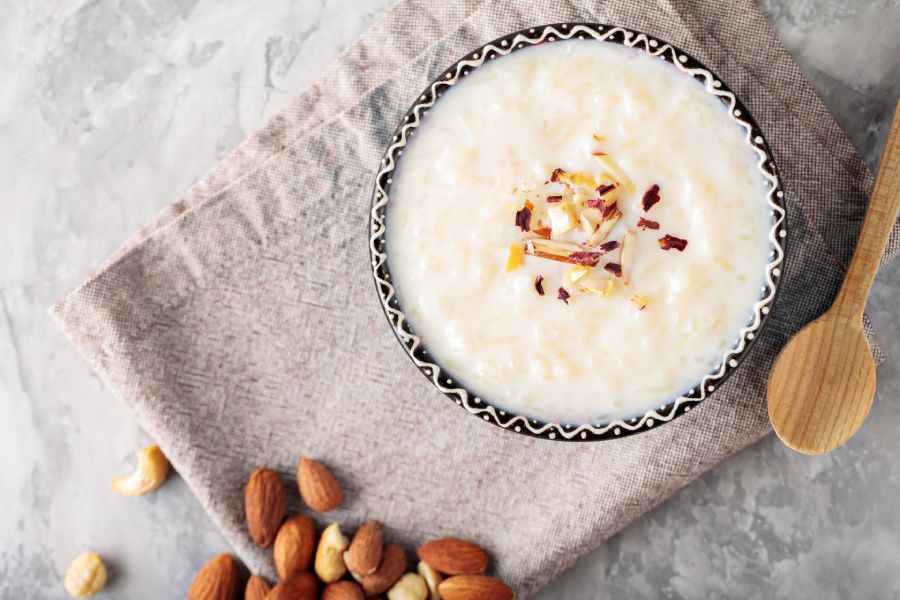
Representational Image Shutterstock
Basant Raj, a media executive from Bihar currently based in Noida, recalled a memory during a religious fast when only plain rice was cooked. Noticing how hungry he was, his mother Kanchan Mani quietly mixed leftover rice, warm milk and sugar into a makeshift meethi kheer. It was simple, yet warm and unforgettable. “I ate it half-asleep, but to this day, I remember how delicious and comforting it felt,” he said.
Years later, Basant found out that his mother had drawn inspiration from a scene in the film Suryavansham, where the heroine feeds her father the same way — with milk and sweetened rice. “It may not be a traditional recipe,” Basant shared, “but for me, it’s filled with emotion and nostalgia.”
‘Shorshe’, a compromise and a family legacy

Representational Image Shutterstock
Nikita Mitra, now based in Vancouver, finds herself thousands of miles away from her mother, Carol Mitra, whose shorshe chicken she describes as the “stuff of dreams”. As a picky eater as a child, Nikita wasn’t too keen on eating fish often. So, her mother dug through their family recipes and whipped it up as a compromise — since Nikita wasn’t fond of fish, even when laden with shorshe. So, Carol shifted gears and experimented with chicken.
“It didn’t have the same pungency as shorshe maach, but the mellow mustard kick that paired beautifully with fluffy white rice or her fragrant yellow pulao won me over instantly,” Nikita said, adding that she heard from her mother that her great-grandmother often rustled up the dish during her time living in Tarkeshwar.
“Its sweet-and-spicy, kasundi-infused flavour — made with minimal oil — was always met with clean plates. Any guest visit that didn’t feature her shorshe chicken was always followed by disappointed sighs,” Nikita shared, adding that even after moving away from Kolkata, her mother’s dish is always the first recipe that comes to her mind whenever there’s a special occasion.
A sweet memory of a not-so-sweet vegetable
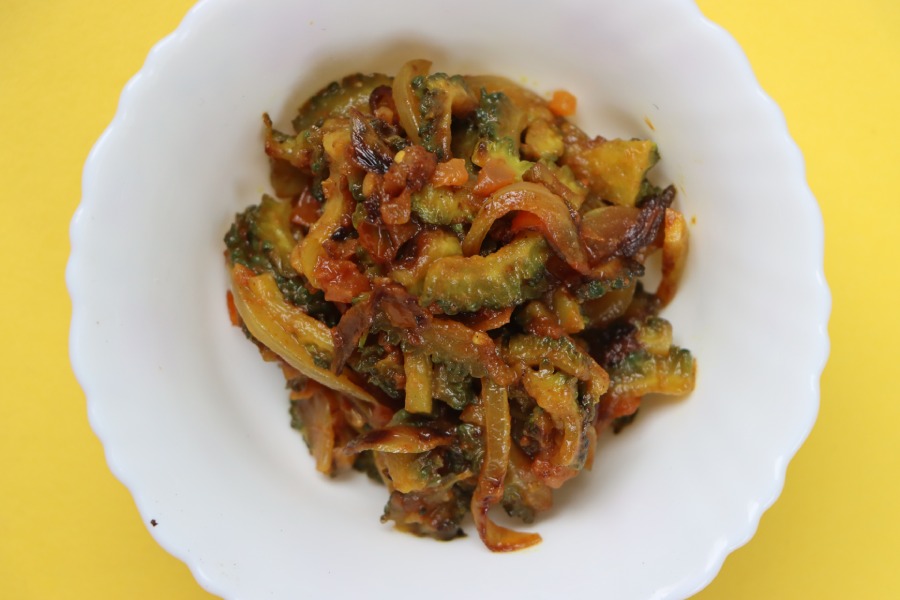
Arnab Basu describes his mother’s bitter gourd preparation as ‘heavenly tasty’ Shutterstock
Arnab Basu, an assistant professor and former RJ, shares that his late mother used to cook like a “magician”. Despite avoiding heavy spices, her dishes were packed with love and magic. Arnab took a stroll down memory lane and revisited a vivid childhood memory — him and his sister refusing to eat fish after tasting their mother’s special Uchher Moulo, a bitter gourd preparation that managed to win over even the pickiest of eaters.
With white vinegar, fennel seeds, mustard oil, and a blend of whole spices, Arnab’s mother magically turned a bitter vegetable into an irresistible dish. “Since maa is gone,” he says, “we never got the same taste again. But it still remains one of the major recipes in our kitchen.”
The Bengali sweet that connects generations
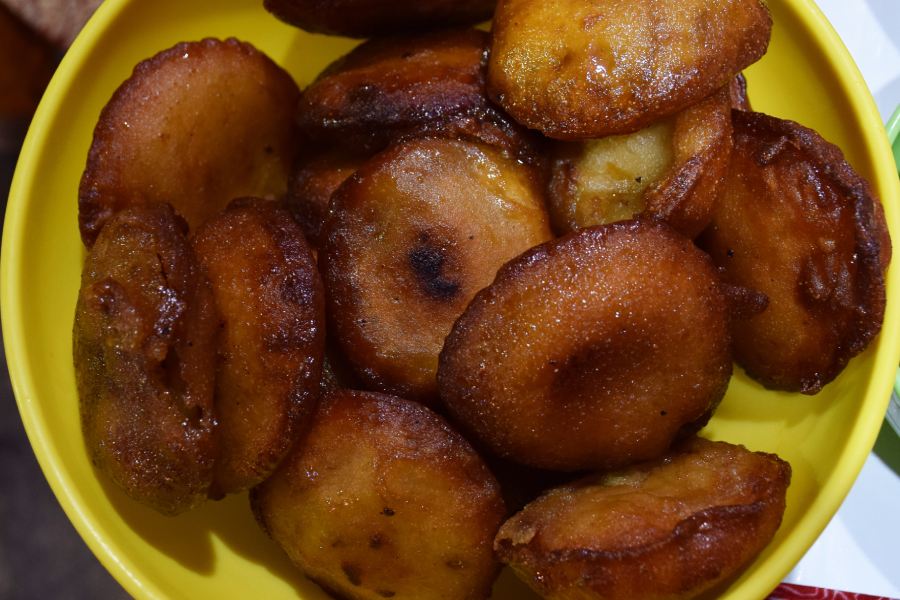
Gokul Pithe is a staple for the Bagchi family during Poush Sankranti Shutterstock
Gokul Pithe has been a sweet that connects generations of Bengalis with a long thread. It is filled with nostalgia even for 19-year-old Ahana Bagchi, an Indira Gandhi Memorial High School student, who recently finished 12th grade. Made by her mother Manjari Bagchi every year during Poush Sankranti, the recipe for the beloved dessert has been passed down from her grandmother to her mother and now, to Ahana.
“It always brings us closer, reminding us of stories from my mother's childhood,” Ahana shares. “I haven't really tried to make it myself, but I have always been curious to stand beside her in the kitchen to learn the recipe and listen to the stories from her childhood.” But more than the process behind making the sweet, it’s the tradition, the heartfelt stories and the warmth that make Gokul Pithe so special for Ahana.
Mom’s magic leads to first compliment from the in-laws
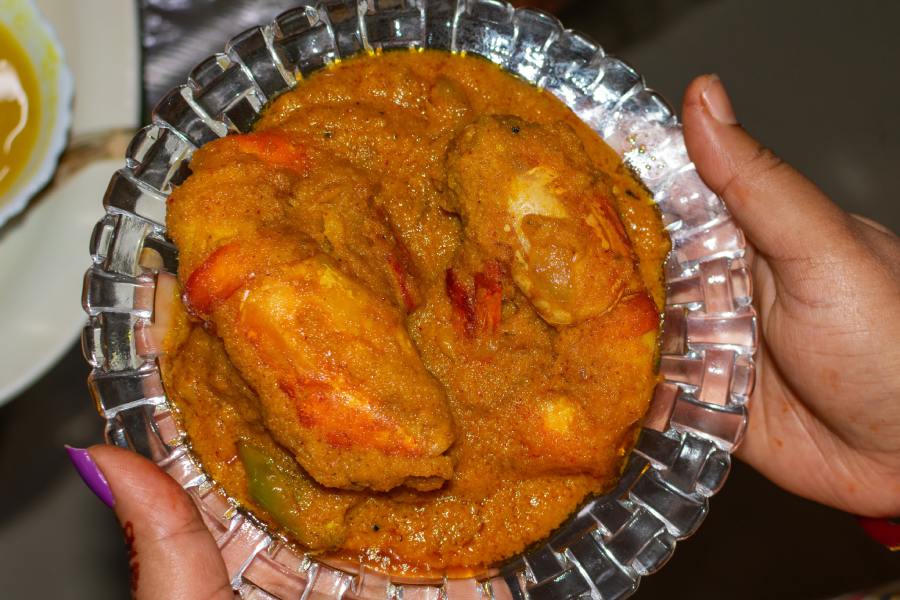
Maitree Chandra Banerjee holds her mother’s golda chingri preparation close to her heart Shutterstock
After she got married in 2011, Maitree Chandra Banerjee, a guest lecturer at Wali Institute of Teachers Education, recreated her mother Jyotsna Chandra’s special golda chingri dish. The recipe was more than just a cooking lesson from her mother. It marked the first compliment she received from her in-laws, turning it into a memory that she still holds close.
Cooked in coconut milk with spices that waver between earthy and aromatic, the dish is rounded off with whole spices, onion, ginger pastes, red chilli and a handful of cashews. The golda chingri, usually reserved for Sundays or special occasions, was the talk of the table when guests arrived. While Maitree laid down the recipe in her own casual way, she brimmed with joy, reminiscing how she treasured the experience of watching her mother cook with confidence and joy.

